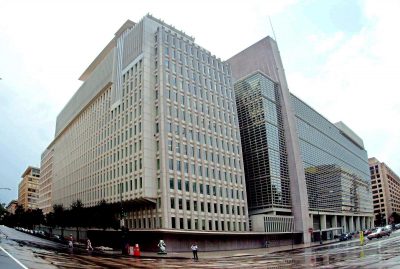The rehabilitation of the Bakolori Irrigation Scheme in Zamfara towards strengthening integrated water resources management and agriculture service delivery has commenced, an official said on Monday.
Mr Peter Manjuk, Project Coordinator, Transforming Irrigation Management in Nigeria (TRIMING) Programme, said this in Abuja in an interview with the News Agency of Nigeria (NAN).
He stated that the Federal Government`s interventionist project was being carried out with the support from the World Bank.
He expressed regret that over the years, investments in River Basin Development Authorities (RBDAs) had not yielded any positive results.
The project coordinator, therefore, stressed the need for all farmers benefitting from irrigation-fed agriculture to take ownership of these schemes.
“The dam itself is not deteriorated, so to speak; the structure itself is still in good shape.
‘’The challenge we have with Bakolori dam is that it has silted up over the years, close to 30 per cent of the capacity has been taking over by silt, siltation.
“We are still studying it to see what interventions we can do on the dam.
‘’What we are commencing any moment from now is the irrigation infrastructure development, which involves rehabilitation and conversion or expansion of the scheme.
“It’s not a dam that has been lying down doing nothing, it still provides potable water that serves the city, and it has also been providing water for Bakolori irrigation scheme over the years.
‘’It’s just that Bakolori irrigation scheme went down and now we are about to revamp it, so it will still continue to serve its functions,” he said.
Manjuk said the Federal Government was also looking at the possibility of tapping into the hydro power component of the dam, saying it would be of great benefit to the populace.
He said TRIMING project was not just to rehabilitate dilapidated irrigation schemes and expand them where possible, but to address the institutional arrangements, improving it in comparison with what is best practiced internationally.
“We are studying the dam; we will do whatever interventions that need to be done to bring it to what is considered minimum safety level, internationally.
‘’Then, what is available will be apportioned for different purposes; usually, potable water is considered first followed by agriculture and then other uses.”
The project coordinator said TRIMING would work towards building the capacities of irrigation-fed farmers in creating groups known as the standard Water Users Associations.
This group, he said, would take charge of their affairs and also collect water fees and pay government for bulk water.
He said the government would not need to follow individual farmers to pay for water used.
“We are doing that because the intention is for the farmers to see irrigated agriculture as business, not just something for survival.
‘’It’s something that you can do to improve your life, your living conditions, educate your children and have a better life.
“And then for the farmers to have an attitude of ownership of this scheme, to see that they have a serious stake, and the responsibility of management.”
TRIMING is a project of the Federal Ministry of Water Resources, supported by the World Bank for the improvement of irrigation system in five schemes across five states in northern Nigeria.
They are: Bakolori Irrigation Scheme in Zamfara, Middle Rima Valley Irrigation scheme in Sokoto, Kano River Irrigation scheme in Kano, Hadejia Valley Irrigation scheme in Jigawa and Dadin Kowa Irrigation scheme in Gombe state. (NAN)

